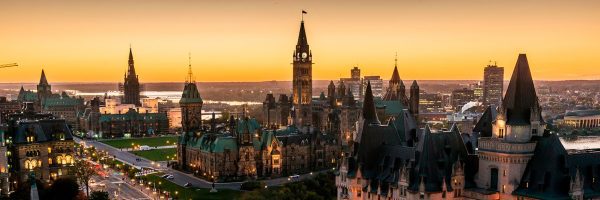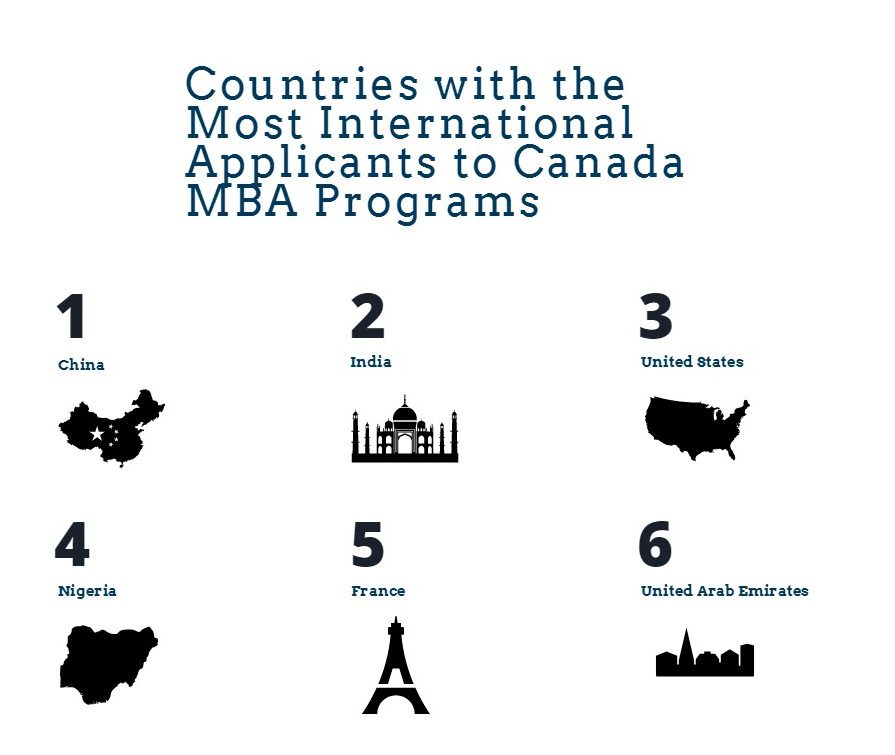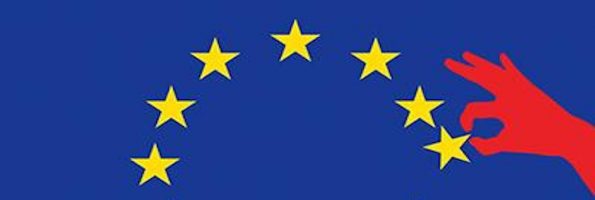Canada’s MBA Programs are Rising

The recent release of the GMAC 2017 Prospective Students Survey Report revealed some mixed revelations. While the status of smaller U.S. school MBA programs may be up in the air, international programs, particularly in Canada, are looking rosier than ever.
Overall, schools in Canada and Europe saw a 50 percent-plus increase in application volume from international candidates, of which GMAC speculates may be a result of political turmoil, particularly in the United States. This is a direct contrast from four years prior, in which less-than half of the Canada, UK, and other European business schools were seeing international applicant growth.
In the GMAC survey, an anonymous Canadian full-time MBA also noted, “The US presidential election has had a impact on our application numbers. Many international students choose Canada as their first choice.”
Niki da Silva, the Managing Director of the full-time MBA program at the Rotman School of Management at the University of Toronto, recently spoke with the Globe & Mail after the release of the report, saying, “This is our opportunity. We have to be anti-Canadian in this moment and really talk about what we are doing. We don’t tend to do that but we need to.”
By The Numbers
Results from the survey found subtle yet distinct differences between the international applicant pools in the major MBA location destinations.

In the United States, Europe, and Canada, according to GMAC, the two most prolific countries with international applicants were unilaterally India and China, which came in either first or second place for each region. However, for Canada, the remaining top 10 international countries with high applicant pools differed slightly from the U.S. and Europe, especially regarding Middle Eastern and North African countries. The United Arab Emirates (6th most), Tunisia (9th), and Iran (10th) were no where to be found in either the U.S. or European top ten.
Breaking the applicant pools down further, GMAC found an unsurprising correlation between the distribution of citizenship by application for Canada and the U.S. and the new data trends. After Europe, which had the most diverse applicant pool (a tricky stat since Europe is qualifying every country on the continent, while the U.S. and Canada are counted as singular entities), Canada had the world’s second biggest international pool of applicants, with less than 50 percent of Canadian business school students having official Canadian citizenship.
Domestic applications, in contrast, are actually down. But the international pool in Canada is swelling, creating substantial overall growth.
“International applicants comprised the vast majority of applications to business programs in Canada—64 percent of MBA applications and 88 percent of business master’s applications.” – GMAC
Gregg Schoenfeld, GMAC’s Director of Research, also noted upward trend for Canadian schools, saying, “This is the first time in the past five years that the majority, in fact three-quarters [of Canadian schools in the survey], are saying they are growing international volumes.”
“From a speculative point of view, it seems that the U.S. political climate has essentially driven candidates to Canada,” he continued.
YOU MIGHT ALSO LIKE: The Highest Starting Salaries for Toronto MBA Grads
The move to enroll more international applicants in Canadian schools started to emerge several years ago. Following lower periods of domestic enrollment, Canada’s MBA programs made a concerted effort to bring in more talent from abroad, creating a multi-year spring in growth that has not only benefited school enrollment, but fostered a positive international environment.
According to Global Affairs Canada, the result has been a positive economic boon as well. Upwards of 90,000 new jobs were created for Canadians just two years prior, while adding $10 billion to the country’s economy.
Tim Daus, Executive Director of the Canadian Federation of Business School Deans, previously noted that the trend was partly made possible because of the country’s flexible immigration policies, saying, “Canada’s visa requirements are much more flexible than other countries’, which gives us an edge. That makes a big difference for students who want to stay and work afterwards.”
Canadian Accolades
The substantial growth Canadian business schools have seen may not solely be the result of political overtones, rather, that many of the country’s best institutions only continue to improve.
The Schulich School of Business at York University in Toronto earned some hefty recognition from Forbes‘ recently released “Best Business Schools” global rankings, earning the 8th spot among the best international two-year program in the world. Schulich grads, Forbes claims, can expect a five-year net gain of over $48,000.
Last year’s Bloomberg BusinessWeek ranking of the best non-U.S. business schools also recognized both the Ivey Business School at Western Canada University and the Rotman School of Management among the top 25 programs in the world. Both the aforementioned Ivey and Rotman programs were recognized among the world’s 100 best by the Financial Times this year as well.
“Business in Capitals” Immersion Takes MBA@American Online Students to Brussels

Last month, a group of Kogod School of Business students took part in an academic and a cultural immersion to Brussels, Belgium. The study experience was the first official MBA@American international trip, bringing together 60 MBA candidates from across the country to explore the European business landscape. Continue reading…
How An MBA Helped A Kellstadt Alum Make It At McDonald’s

A recent post on the Kellstadt Graduate School of Business website highlights the achievement of alum Michael Friedrich (MBA ’95). Friedrich is one example of a graduate who has benefited from the business school’s relationship with the business community. Continue reading…
Cambridge Judge Professor Talks Competition in Business

In business, it’s always about being the best. You have to look out for number one. That’s your only priority. As long as you’re beating your competition, you’re set. Well, that’s not exactly true according to Professor Shahzad Ansari, a Professor of Strategy & Innovation at University of Cambridge’s Judge Business School. In a recent news article, he presented a different idea. “You don’t need to blow out someone else’s light to make yours shine,” said Ansari. “Going in too aggressively harms your own reputation and can wreck your business.” Continue reading…
Columbia Breaks Down What Brexit Could Mean Down The Road

Columbia Business School posted an article on its blog this week by Professor and Nobel laureate Joseph E. Stiglitz about the potential economic fallout that the United Kingdom’s recent “Brexit” referendum could have on the global political arena in the not-too-distant future. Continue reading…
London Business School Students Gain Experience in Hong Kong

Ninety-three MBA students from the London Business School recently returned from participating in a Global Business Experience (GBE) in Hong Kong, an opportunity that allowed these students to hone their skills through real-world business experiences in a rapidly developing part of the world. The GBE is considered to be an important part of the MBA program at the London Business School, both by the faculty and the student body. The school commits to taking all second-year MBA students, about 410 this year, on a GBE to developing and emerging regions so they may see how business theory works when applied to real-world situations. Continue reading…
